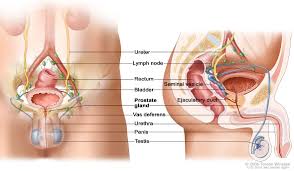Two new studies show that sleeping well and exercising may play important roles in preventing prostate cancer
Your lifestyle impacts both your risk of developing cancer and how quickly you recover after surgery. In the case of prostate cancer, two new studies show that sleeping well and exercising may play important roles in keeping you healthy longer.
Melatonin Could Reduce Risk of Prostate Cancer
One aspect of a healthy lifestyle that is often lost amid busy schedules is sleep, but missing out on quality time between the sheets may increase the risk of prostate cancer.
That’s because throwing off your sleep schedule can also disrupt the production of melatonin, a hormone that is part of the body’s circadian rhythm, or internal clock.

The importance of melatonin—and sleep—for health is highlighted by a recent preliminary study during which researchers found a connection between melatonin levels and prostate cancer.
“Our main finding was that men with melatonin levels above the median had a 30 percent decreased risk of prostate cancer overall and a 75 percent statistically significant decreased risk of advanced disease, compared to men with levels below the median," said lead author Sarah C. Markt, M.P.H., doctoral candidate in the Department of Epidemiology at Harvard School of Public Health.
The body produces the most melatonin at night, when it is dark. Bright lights at night or too little light during the day, however, can decrease the amount of melatonin in the body—a sign that your body’s clock is out of sync.
Low melatonin often occurs along with less than perfect sleep. In the Harvard study, men who reported having sleep problems—such as difficulty falling asleep or staying asleep, or taking sleeping medications—had lower levels of 6-sulfatoxy melatonin, a breakdown product of melatonin, compared with men who slept regularly.

The study, which was presented at the 2014 AACR-Prostate Cancer Foundation Conference on Advances in Prostate Cancer Research, is relatively small—with only 111 men diagnosed with prostate cancer—and has yet to be published in a peer-reviewed journal.
"Further prospective studies to investigate the interplay between sleep duration, sleep disturbance, and melatonin levels on risk for prostate cancer are needed," says Markt.

While previous animal and laboratory studies showed that melatonin may have anticancer properties, the results of research in people are mixed.
“About half of the articles have shown some beneficial effect, the other half have shown no beneficial effect,” says Cary A. Presant, M.D., FACP, a hematologist and medical oncologist at Wilshire Oncology Medical Group. “This is something that remains a somewhat unproven method of therapy for patients.”

Melatonin supplements are relatively safe—with few side effects—but Dr. Presant recommends handling prostate cancer carefully.
“There are other types of medication that are less controversial and better proven to reduce the risk of prostate cancer, and that also to extend the lives of patients with cancer once they have it,” says Presant.

Good sleep, though, has benefits beyond melatonin levels, including a reduced risk of chronic diseases like diabetes, high blood pressure, and obesity. Fortunately, healthy sleep can help keep melatonin at an optimum level.
“One of the best ways to preserve melatonin production is avoiding exposure to light at night and keeping a regular sleep schedule,” says Markt.
Brisk Walking May Improve Prostate Cancer Outcome
Exercise has long been known to reduce the risk of cancer. In another preliminary study from the AACR-Prostate Cancer Foundation Conference, researchers demonstrate that the benefits of physical activity for prostate cancer may be due to changes in the blood vessels in the tumor.
“We found that men who reported walking at a brisk pace had more regularly shaped vessels in their tumor,” says Erin Van Blarigan, Sc.D., assistant professor in the Department of Epidemiology and Biostatistics at the University of California, San Francisco, “which has been associated with having a better prognosis.”
In the study, researchers used data from 572 men who underwent surgery for prostate cancer and were enrolled in the Health Professionals Follow-up Study, which has been collecting information on participants since 1986.
While researchers aren’t certain exactly how the shape of the tumor’s blood vessels affects the outcome of prostate cancer treatment, the study provides a possible mechanism for previous research linking higher physical activity and decreased prostate cancer recurrence and death.
While more research is needed, previous studies provide some indication of how much exercise is needed when it comes to prostate cancer.

“In prostate cancer,” says Van Blarigan, “it appears that it is the intensity of activity that seems to be the most important for preventing its spread, versus cardiovascular disease where total duration of exercise is what matters.”
Given the many other health benefits of exercise, some doctors will continue to prescribe physical activity for prostate cancer patients even before the underlying mechanism is clear.


“Exercise is something that I recommend for my patients,” says Presant. “It decreases weight in patients, and this has also been shown to be associated with a reduction in cancer risk, not only in prostate cancer, but also in breast cancer, and there’s some data in colon cancer.”
